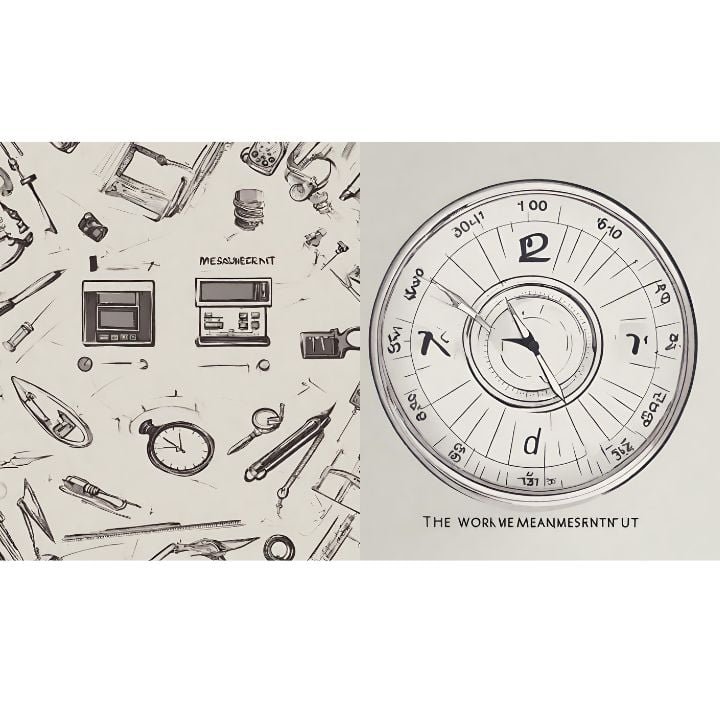Quality Control Projects for BSc Industrial Engineering Students
Embarking on a Bachelor of Science degree in Industrial Engineering opens doors to a vast array of practical applications, with quality control standing out as a critical domain. For students eager to apply theoretical knowledge to real-world challenges, engaging in meaningful projects is paramount. This article explores compelling quality control project ideas that can not only enhance your academic portfolio but also provide invaluable hands-on experience in ensuring product and process excellence.
Table of Contents
- The Essence of Quality Control in Industrial Engineering
- Why Quality Control Matters for Students
- 5 Must-Do Quality Control Project Ideas
- Key Methodologies and Tools for Student Projects
- Maximizing Your Project’s Impact
- Conclusion
The Essence of Quality Control in Industrial Engineering
Industrial Engineering focuses on optimizing complex processes, systems, and organizations. Within this discipline, quality control plays a pivotal role. It involves implementing systematic methods to ensure that products or services meet specified standards and customer requirements. From manufacturing floors to service industries, effective quality control minimizes defects, reduces waste, and boosts overall efficiency and customer satisfaction.
Why Quality Control Matters for Students
For BSc Industrial Engineering students, understanding and applying quality control principles is not just an academic exercise; it’s a fundamental skill set for future careers. Projects in this area offer a unique opportunity to:
- Develop analytical and problem-solving abilities.
- Gain practical experience with industry-standard tools and techniques.
- Understand the impact of quality on business profitability and reputation.
- Collaborate in teams and communicate technical findings effectively.
5 Must-Do Quality Control Project Ideas
Here are some excellent project ideas centered around quality control that BSc Industrial Engineering students can undertake to gain practical experience.
Process Improvement Through Statistical Process Control (SPC)
This project involves applying Statistical Process Control (SPC) techniques to monitor and control a production process. Students can collect data from a manufacturing line (e.g., product dimensions, fill weights) and use control charts (X-bar, R, P, C charts) to identify process stability, detect out-of-control conditions, and suggest improvements. Focus on a specific product or process within a local company or university lab.
Lean Six Sigma Implementation in Manufacturing
A more ambitious project might involve applying Lean Six Sigma methodologies (DMAIC – Define, Measure, Analyze, Improve, Control) to a real-world problem. This could be reducing defect rates in a manufacturing process, improving cycle time, or optimizing a service delivery process. Students would need to define the problem, measure current performance, analyze root causes, propose and implement improvements, and establish control mechanisms.
Supplier Quality Management System Development
Investigate and propose the development or improvement of a supplier quality management system for a small to medium-sized enterprise. This involves evaluating current supplier selection processes, incoming material inspection procedures, and supplier performance tracking. The project could culminate in a documented system or a set of recommendations for better supplier integration and quality assurance.
Ergonomics and Quality in the Workplace
Explore the relationship between ergonomic factors and product/service quality. Students can conduct a study within an assembly line or an office environment to identify ergonomic issues (e.g., repetitive strain, poor workstation design) that lead to errors, defects, or reduced productivity. Propose ergonomic interventions and analyze their potential impact on quality metrics. This shows a holistic view of quality beyond just product specifications.
Quality Auditing and Compliance Project
Undertake a project focused on quality auditing. This could involve performing an internal audit against a recognized standard like ISO 9001 for a specific department or process. Students would learn about audit planning, checklist development, evidence collection, non-conformance reporting, and corrective action recommendations. This project provides insight into maintaining quality management systems.
Key Methodologies and Tools for Student Projects
Successful quality control projects leverage a variety of tools and methodologies. Familiarity with these is crucial for any aspiring Industrial Engineer.
Data Collection and Analysis Techniques
Mastering data collection methods (e.g., check sheets, surveys, direct observation) and analysis techniques (e.g., Pareto charts, histograms, scatter plots, root cause analysis like 5 Whys or Fishbone diagrams) is fundamental. These allow students to identify patterns, pinpoint problems, and propose data-driven solutions.
Software and Simulation Tools
Several software packages can greatly assist in quality control projects. Minitab, JMP, and R are popular for statistical analysis. Simulation software like Arena or FlexSim can model processes to test improvements virtually before implementation. Learning these tools provides a competitive edge.
Comparative Analysis of QC Tools
| Tool Name | Primary Use | Key Benefit | Complexity |
|---|---|---|---|
| Control Charts | Monitoring process stability | Detects process shifts in real-time | Medium |
| Pareto Chart | Identifying the ‘vital few’ causes | Prioritizes problems based on frequency | Low |
| Fishbone Diagram | Root cause analysis | Organizes potential causes of a problem | Medium |
| FMEA (Failure Mode and Effects Analysis) | Proactive risk assessment | Identifies potential failures and their impact | High |
For more insights into career paths and skill development in this field, you might find our article on Industrial Engineering Careers insightful.
Maximizing Your Project’s Impact
Beyond the technical aspects, how you manage and present your project can significantly boost its impact.
Collaboration and Mentorship
Working in teams simulates real-world environments. Seek mentorship from professors or industry professionals. Their experience can guide you through complex challenges and provide valuable feedback, especially when dealing with nuanced quality control issues.
Documentation and Presentation
Thorough documentation of your project’s methodology, findings, and recommendations is crucial. A clear, concise, and professional presentation of your results, whether through a report, poster, or oral presentation, showcases your analytical and communication skills. Consider referencing professional organizations like the American Society for Quality (ASQ) for best practices and resources.
Conclusion
Undertaking a quality control project as a BSc Industrial Engineering student is an invaluable opportunity to gain practical skills, deepen your understanding, and prepare for a successful career. By choosing a relevant project, applying appropriate methodologies, and effectively communicating your findings, you can make a tangible difference and position yourself as a competent industrial engineer ready to tackle the challenges of quality and efficiency in any industry. These projects are more than just assignments; they are stepping stones to becoming an expert in optimizing processes and delivering excellence.


